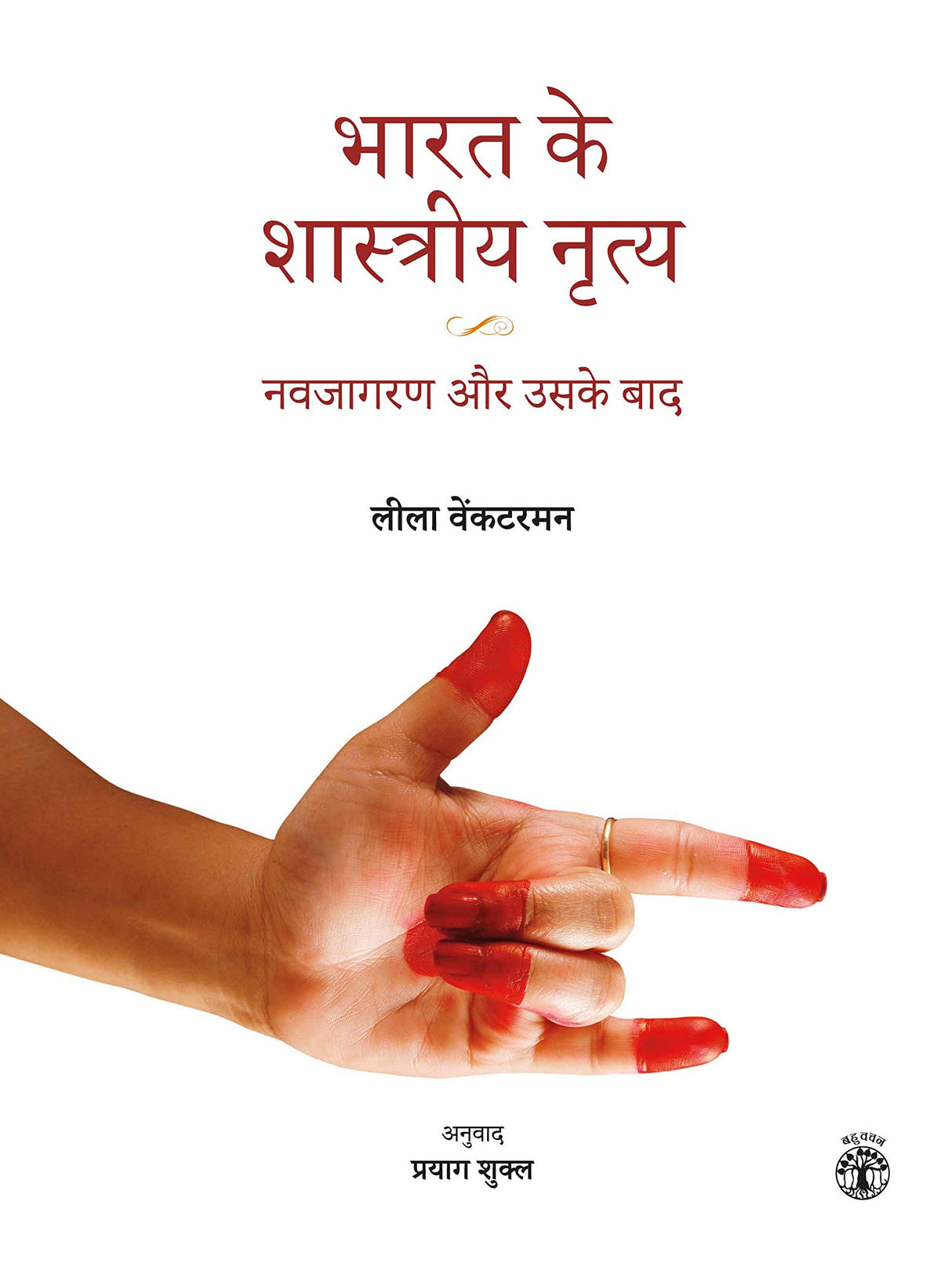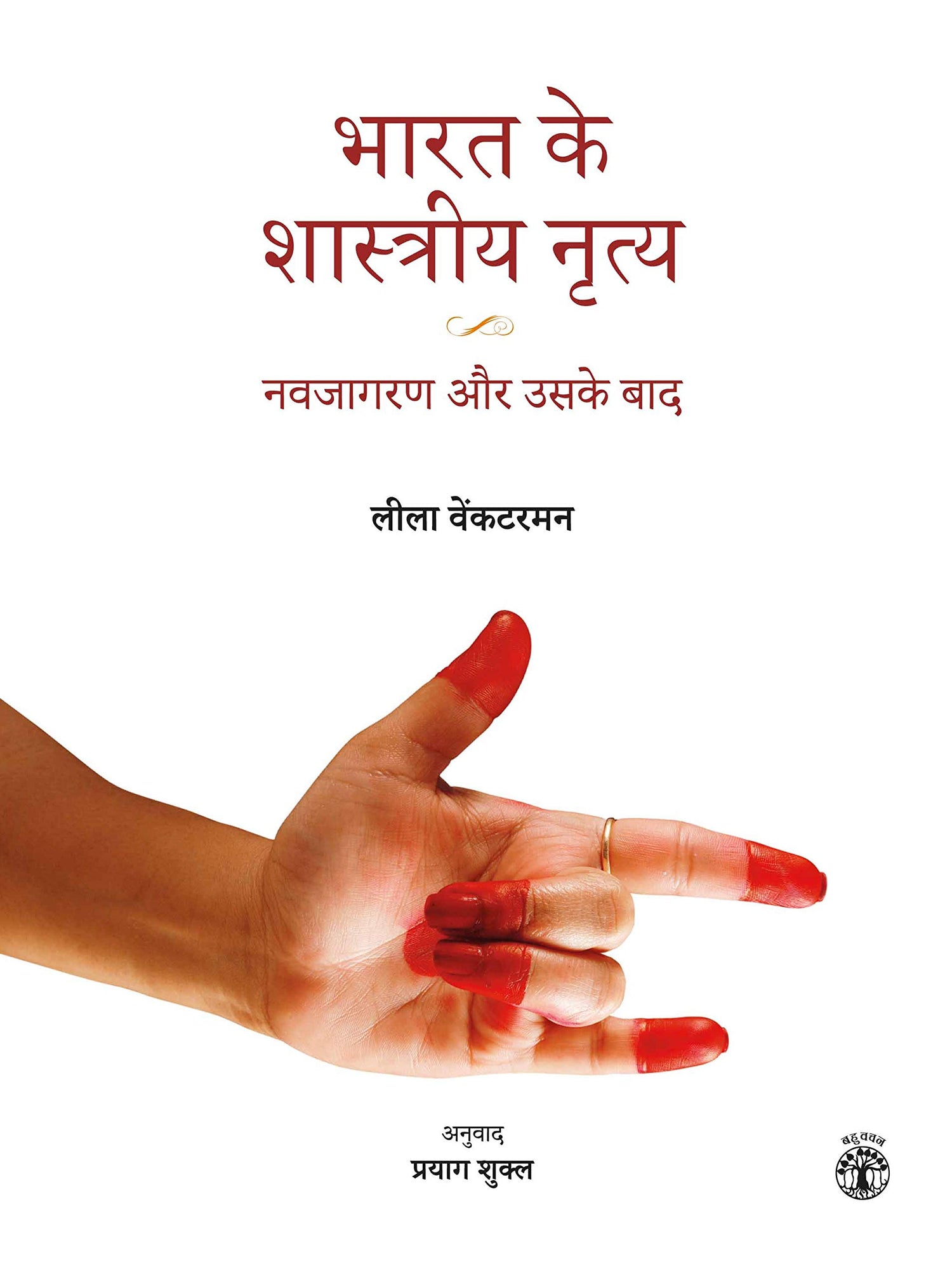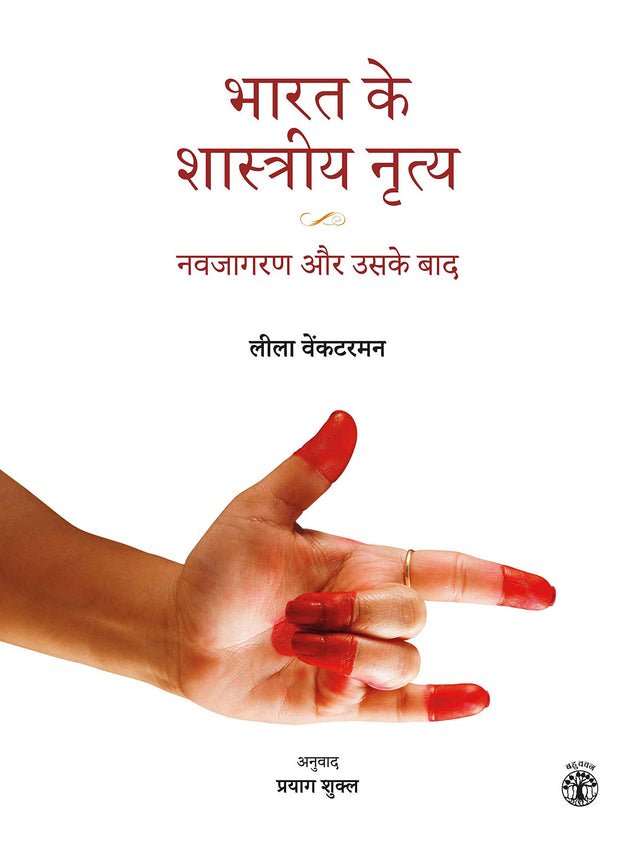Bharat Ke Shastriya Nritya: Navjagran Aur Uske Baad (Hindi)
Bharat Ke Shastriya Nritya: Navjagran Aur Uske Baad (Hindi) is backordered and will ship as soon as it is back in stock.
Couldn't load pickup availability
Genuine Products Guarantee
Genuine Products Guarantee
We guarantee 100% genuine products, and if proven otherwise, we will compensate you with 10 times the product's cost.
Delivery and Shipping
Delivery and Shipping
Products are generally ready for dispatch within 1 day and typically reach you in 3 to 5 days.
Book Details
-
Author: Leela Venkataraman
-
Publisher: Niyogi Books Pvt. Ltd. (Imprint: Bahuvachan)
-
Edition: First Edition
-
Binding: Hardcover
-
Number of Pages: 392
-
Release Date: 12-06-2019
-
ISBN: 9789386906854
-
Languages: Hindi
-
Dimensions: 9.5 x 7.4 x 1.1 inches
About the Book
भारतीय शास्त्रीय नृत्य: नवजागरण और उसके बाद (Indian Classical Dance: The Renaissance and Beyond) by Leela Venkataraman presents a detailed and insightful journey into the evolution of Indian classical dance post-independence. The book intricately explores the history and transformation of eight major classical dance forms – Bharatanatyam, Kathak, Kuchipudi, Kathakali, Manipuri, Mohiniattam, Odissi, and Sattriya – while offering a thorough understanding of their contemporary significance.
Venkataraman highlights the critical period during the last few years of British rule, which saw classical dance forms undergo a significant transformation as they moved away from their traditional associations with temples and royal courts. The shift in these art forms' roles was closely linked to India’s nationalist movement, as the country sought to rediscover and affirm its cultural identity. The dance forms not only became part of the cultural renaissance but also aimed at establishing a unique national identity that could stand proudly on the international stage.
Over the last six decades, Indian classical dance has witnessed profound changes, some intentional and others more organic. Venkataraman’s exploration of these transformations reflects on how dance forms have evolved with each new generation of dancers and musicians, perpetuating a dynamic and ever-expanding tradition.
The book covers a wide range of topics including the importance of sponsorship and patronage, the evolution of the teacher-disciple tradition, and the contemporary values of classical dance. It also touches on the pressing questions surrounding dance’s survival and growth, such as the role of training and preserving the guru-shishya parampara.
This well-illustrated book is an essential resource for dancers, dance historians, students, teachers, and anyone with an interest in the rich world of Indian classical dance. It offers a multi-dimensional perspective on these ancient art forms, their journey from the past to the present, and their role in shaping Indian culture and identity.





